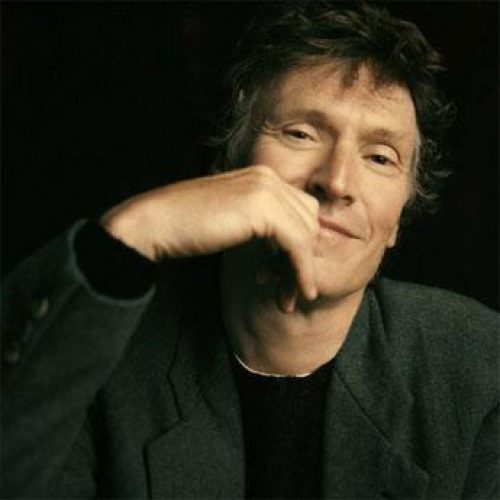Home - Artists - $750,000 + - Steve Winwood
Book Steve Winwood

Imagine Steve Winwood Headlining Your Event!
The staff of Headline Booking Group will work with you to produce a flawless and memorable event. Get started now by filling out our no-obligation Artist Request Form.
Biography
Steve Winwood Biography
Steve Winwood
🎤 Steve Winwood – A Versatile Maestro of Rock and Soul
Steve Winwood is a British musician celebrated for his soulful voice, masterful multi-instrumental abilities, and a career that has seamlessly traversed various genres including rock, blues, and jazz. From his early days with influential bands to his successful solo endeavors, Winwood's contributions have left an indelible mark on the music industry.
🌟 About Steve Winwood
Born Stephen Lawrence Winwood on May 12, 1948, in Birmingham, England, Steve exhibited musical talent from a young age. By 15, he was the lead vocalist and keyboardist for the Spencer Davis Group, delivering hits like "Gimme Some Lovin'" and "I'm a Man." In 1967, he co-founded Traffic, blending rock with jazz and psychedelia, producing classics such as "Dear Mr. Fantasy." Winwood's collaborative spirit led him to join Blind Faith in 1969 alongside Eric Clapton, Ginger Baker, and Ric Grech, releasing a self-titled album that topped charts. Embarking on a solo career in the late 1970s, Winwood released albums like Arc of a Diver and Back in the High Life, showcasing his versatility and securing his place as a solo artist.AllMusic+1Wikipedia – Die freie Enzyklopädie+1GrayRock Entertainment+8Wikipedia+8Wikipedia – Die freie Enzyklopädie+8AllMusic+4Factsnippet+4GrayRock Entertainment+4
Learn more on Steve Winwood's Official Biography
🎶 Genres & Style
-
Rock
-
Blue-Eyed Soul
-
Jazz Fusion
-
Pop Rock
Winwood's music is characterized by its rich fusion of rock, soul, and jazz elements. His distinctive, soulful vocals combined with his proficiency on various instruments, including keyboards, guitar, and mandolin, have defined his signature sound.Apple Music - Web Player+12Smooth+12Encyclopedia Britannica+12
🏆 Notable Achievements
-
Grammy Awards: Two wins, including Record of the Year for "Higher Love."Smooth+2Smooth+2The Australian+2
-
Rock and Roll Hall of Fame: Inducted as a member of Traffic in 2004.Factsnippet+1Wikipedia+1
-
BMI Icon Award: Honored for his enduring influence on generations of music makers.
-
Honorary Doctorates: Received from Berklee College of Music and Aston University.Steve Winwood
Explore his accolades on Steve Winwood's Official Biography
🎧 Hit Songs
-
"Higher Love" – A chart-topping single blending uplifting lyrics with infectious rhythms.
-
"Valerie" – An enduring track known for its catchy melody and heartfelt vocals.Apple Music - Web Player+1Smooth+1
-
"Roll With It" – A soulful anthem that topped the Billboard Hot 100.
-
"While You See a Chance" – A song that marked his successful transition to solo artistry.
-
"Gimme Some Lovin'" – A classic hit from his early days with the Spencer Davis Group.Wikipedia+3Factsnippet+3Encyclopedia Britannica+3
🎥 Watch & Listen
📺 YouTube
Watch performances on Steve Winwood's Official YouTube Channel
🎧 Spotify
Listen to Steve Winwood on Spotify
💡 Booking Appeal
Steve Winwood's extensive repertoire and seasoned stage presence offer audiences a rich musical experience that spans decades of hits and genres. His performances are a blend of nostalgia and timeless artistry, appealing to a wide demographic.
Perfect for:
-
Music Festivals
-
Corporate Events
-
Private Concerts
-
Cultural Celebrations
-
Benefit Galas
🎤 Quote to Remember
"Music is a powerful thing. It's a universal language that brings people together." – Steve Winwood
✨ Booking Steve Winwood ensures an event filled with classic hits, masterful musicianship, and an atmosphere of soulful celebration.
Steve Winwood
🎤 Steve Winwood – A Versatile Maestro of Rock and Soul
Steve Winwood is a British musician celebrated for his soulful voice, masterful multi-instrumental abilities, and a career that has seamlessly traversed various genres including rock, blues, and jazz. From his early days with influential bands to his successful solo endeavors, Winwood’s contributions have left an indelible mark on the music industry.
🌟 About Steve Winwood
Born Stephen Lawrence Winwood on May 12, 1948, in Birmingham, England, Steve exhibited musical talent from a young age. By 15, he was the lead vocalist and keyboardist for the Spencer Davis Group, delivering hits like “Gimme Some Lovin'” and “I’m a Man.” In 1967, he co-founded Traffic, blending rock with jazz and psychedelia, producing classics such as “Dear Mr. Fantasy.” Winwood’s collaborative spirit led him to join Blind Faith in 1969 alongside Eric Clapton, Ginger Baker, and Ric Grech, releasing a self-titled album that topped charts. Embarking on a solo career in the late 1970s, Winwood released albums like Arc of a Diver and Back in the High Life, showcasing his versatility and securing his place as a solo artist.AllMusic+1Wikipedia – Die freie Enzyklopädie+1GrayRock Entertainment+8Wikipedia+8Wikipedia – Die freie Enzyklopädie+8AllMusic+4Factsnippet+4GrayRock Entertainment+4
Learn more on Steve Winwood’s Official Biography
🎶 Genres & Style
-
Rock
-
Blue-Eyed Soul
-
Jazz Fusion
-
Pop Rock
Winwood’s music is characterized by its rich fusion of rock, soul, and jazz elements. His distinctive, soulful vocals combined with his proficiency on various instruments, including keyboards, guitar, and mandolin, have defined his signature sound.Apple Music – Web Player+12Smooth+12Encyclopedia Britannica+12
🏆 Notable Achievements
-
Grammy Awards: Two wins, including Record of the Year for “Higher Love.”Smooth+2Smooth+2The Australian+2
-
Rock and Roll Hall of Fame: Inducted as a member of Traffic in 2004.Factsnippet+1Wikipedia+1
-
BMI Icon Award: Honored for his enduring influence on generations of music makers.
-
Honorary Doctorates: Received from Berklee College of Music and Aston University.Steve Winwood
Explore his accolades on Steve Winwood’s Official Biography
🎧 Hit Songs
-
“Higher Love” – A chart-topping single blending uplifting lyrics with infectious rhythms.
-
“Valerie” – An enduring track known for its catchy melody and heartfelt vocals.Apple Music – Web Player+1Smooth+1
-
“Roll With It” – A soulful anthem that topped the Billboard Hot 100.
-
“While You See a Chance” – A song that marked his successful transition to solo artistry.
-
“Gimme Some Lovin'” – A classic hit from his early days with the Spencer Davis Group.Wikipedia+3Factsnippet+3Encyclopedia Britannica+3
🎥 Watch & Listen
📺 YouTube
Watch performances on Steve Winwood’s Official YouTube Channel
🎧 Spotify
Listen to Steve Winwood on Spotify
💡 Booking Appeal
Steve Winwood’s extensive repertoire and seasoned stage presence offer audiences a rich musical experience that spans decades of hits and genres. His performances are a blend of nostalgia and timeless artistry, appealing to a wide demographic.
Perfect for:
-
Music Festivals
-
Corporate Events
-
Private Concerts
-
Cultural Celebrations
-
Benefit Galas
🎤 Quote to Remember
“Music is a powerful thing. It’s a universal language that brings people together.” – Steve Winwood
✨ Booking Steve Winwood ensures an event filled with classic hits, masterful musicianship, and an atmosphere of soulful celebration.
Expand Full Bio
As a solo artist,, Steve Winwood is primarily associated with the highly polished blue-eyed soul-pop that made him a star in the '80s. Yet his turn as a slick, upscale mainstay of adult contemporary radio was simply the latest phase of a long and varied career, one that's seen the former teenage R&B shouter move through jazz, psychedelia, blues-rock, and progressive rock. Possessed of a powerful, utterly distinctive voice, Winwood was also an excellent keyboardist who remained an in-demand session musician for most of his career, even while busy with high-profile projects.
In 1963 Steve Winwood joined guitarist Spencer Davis to form the Spencer Davis Group. Winwood eventually tired of the tight pop-single format. Accordingly, he left the Spencer Davis Group in 1967 to form Traffic with guitarist Dave Mason, horn player Chris Wood, and drummer Jim Capaldi, all of whom had played on 'Gimme Some Lovin'.' The quartet retired to a small cottage in the Berkshire countryside, where they could work out their sound -- a unique blend of R&B, Beatlesque pop, psychedelia, jazz, and British folk -- and jam long into the night without angering neighbors. Traffic debuted in the U.K. with the single 'Paper Sun' in May 1967, and soon issued their debut album Mr. Fantasy. Winwood broke up the band at the beginning of 1969. Even so, by that time, he had become the unofficial in-house keyboardist for Traffic's label Island, playing at numerous recording sessions. Winwood subsequently hooked up with old friend Eric Clapton and their self-titled debut, Blind Faith, released in the summer of 1969, was a hit, but the extreme pressure on the group led to their breakup even before the end of the year. Winwood began work on what was slated to be his first solo LP, but he gradually brought in more ex-Traffic members to help him out, to the point where the album simply became a band reunion. John Barleycorn Must Die was released later in 1970, showcasing the sort of jam-happy jazz-rock sound that Winwood had in mind for the group from the start. Several more albums in that vein followed, including 1971's The Low Spark of High-Heeled Boys, which brought Traffic to the peak of their commercial popularity in America. The run was briefly interrupted by Winwood's bout with peritonitis around 1972, but he'd recovered enough to play a major role in Eric Clapton's early-1973 comeback concerts at the Rainbow Theatre. Dismayed, he returned to Gloucestershire and all but disappeared from music. He returned in late 1980 with the little-heralded Arc of a Diver, a much stronger effort on which he played every instrument himself. Modernizing Winwood's sound with more synthesizers and electronic percussion, Arc of a Diver was a platinum-selling hit in the U.S., helped by the hit single 'While You See a Chance'; it received highly positive reviews as well.Winwood returned in 1986, with an album of slickly crafted, sophisticated pop called Back in the High Life, which was his first '80s album to feature outside session musicians. It was a smash hit, selling over three-million copies and producing Winwood's first number one single in 'Higher Love,' which also won a Grammy for Record of the Year. In 1987, Virgin offered Winwood a substantial sum of money and successfully pried him away from Island; a remixed version of Talking Back to the Night's 'Valerie,' featured on the Island-greatest-hits compilation Chronicles, became a Top Ten hit later that year. Winwood's hot streak continued with his first album for Virgin, 1988's Roll With It. The title track became his second number one and his biggest hit ever, and the album topped the charts as well. The brilliant About Time appeared in 2003, followed in 2008 by Nine Lives
As a solo artist,, Steve Winwood is primarily associated with the highly polished blue-eyed soul-pop that made him a star in the ’80s. Yet his turn as a slick, upscale mainstay of adult contemporary radio was simply the latest phase of a long and varied career, one that’s seen the former teenage R&B shouter move through jazz, psychedelia, blues-rock, and progressive rock. Possessed of a powerful, utterly distinctive voice, Winwood was also an excellent keyboardist who remained an in-demand session musician for most of his career, even while busy with high-profile projects.
In 1963 Steve Winwood joined guitarist Spencer Davis to form the Spencer Davis Group. Winwood eventually tired of the tight pop-single format. Accordingly, he left the Spencer Davis Group in 1967 to form Traffic with guitarist Dave Mason, horn player Chris Wood, and drummer Jim Capaldi, all of whom had played on ‘Gimme Some Lovin’.’ The quartet retired to a small cottage in the Berkshire countryside, where they could work out their sound — a unique blend of R&B, Beatlesque pop, psychedelia, jazz, and British folk — and jam long into the night without angering neighbors. Traffic debuted in the U.K. with the single ‘Paper Sun’ in May 1967, and soon issued their debut album Mr. Fantasy. Winwood broke up the band at the beginning of 1969. Even so, by that time, he had become the unofficial in-house keyboardist for Traffic’s label Island, playing at numerous recording sessions. Winwood subsequently hooked up with old friend Eric Clapton and their self-titled debut, Blind Faith, released in the summer of 1969, was a hit, but the extreme pressure on the group led to their breakup even before the end of the year. Winwood began work on what was slated to be his first solo LP, but he gradually brought in more ex-Traffic members to help him out, to the point where the album simply became a band reunion. John Barleycorn Must Die was released later in 1970, showcasing the sort of jam-happy jazz-rock sound that Winwood had in mind for the group from the start. Several more albums in that vein followed, including 1971’s The Low Spark of High-Heeled Boys, which brought Traffic to the peak of their commercial popularity in America. The run was briefly interrupted by Winwood’s bout with peritonitis around 1972, but he’d recovered enough to play a major role in Eric Clapton’s early-1973 comeback concerts at the Rainbow Theatre. Dismayed, he returned to Gloucestershire and all but disappeared from music. He returned in late 1980 with the little-heralded Arc of a Diver, a much stronger effort on which he played every instrument himself. Modernizing Winwood’s sound with more synthesizers and electronic percussion, Arc of a Diver was a platinum-selling hit in the U.S., helped by the hit single ‘While You See a Chance’; it received highly positive reviews as well.Winwood returned in 1986, with an album of slickly crafted, sophisticated pop called Back in the High Life, which was his first ’80s album to feature outside session musicians. It was a smash hit, selling over three-million copies and producing Winwood’s first number one single in ‘Higher Love,’ which also won a Grammy for Record of the Year. In 1987, Virgin offered Winwood a substantial sum of money and successfully pried him away from Island; a remixed version of Talking Back to the Night’s ‘Valerie,’ featured on the Island-greatest-hits compilation Chronicles, became a Top Ten hit later that year. Winwood’s hot streak continued with his first album for Virgin, 1988’s Roll With It. The title track became his second number one and his biggest hit ever, and the album topped the charts as well. The brilliant About Time appeared in 2003, followed in 2008 by Nine Lives
Steve Winwood Booking Request Form
Please fill out the form below. One of our booking agents will contact you within 24 hours to discuss your event in greater detail.
Our Services Include

Comprehensive needs assessment

Contacting and negotiating with celebrity talent representation


Serving as a liaison between your staff and the artist ensuring a flawless performance

You also might like

Rock

Rock

Rock

Rock

Rock

Rock

Rock

Rock

Rock

Rock
The Headline Booking Promise
At Headline Booking, we deliver unforgettable celebrity entertainment performances for private parties that create lasting impressions and lifelong memories. Our promise is a Gold Standard of service, so you can relax and enjoy the show while trusting that every detail will be executed flawlessly. When you choose Headline Booking, we provide:
Booking of your favorite A-list artist to perform at your private event
Contracting with the artist and coordination of all Artist travel logistics
Our staff to advance all details with you specific to your event
A professional on-site production team overseeing all concert details delivering a seamless experience to be enjoyed by all
